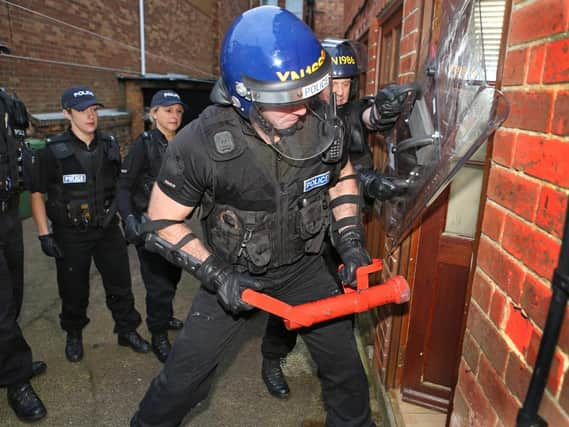North Yorkshire trials new pilot scheme to support victims of modern slavery and illegal drugs gangs


Organised criminal syndicates have turned their attention to often rural parts of the country to evade law enforcement agencies by preying on young and vulnerable people in countryside communities.
The new pilot in North Yorkshire and York has seen the launch of a new, multi-agency panel, which will make key decisions on protecting and supporting adult and child victims of modern slavery in the county.
Advertisement
Hide AdAdvertisement
Hide AdThe manager for multiple vulnerabilities with North Yorkshire County Council, Jess Markwart, said: “Many people may be surprised to learn that modern slavery affects North Yorkshire, as well as the rest of the UK, but sadly, that is the case.
“The creation of this panel gives us powers locally to make decisions on keeping victims safe and removing them from the criminals’ control.
“The local agencies involved with the panel will have local knowledge and context and will be well placed to put in place the best possible support to keep people safe and protected from traumatic circumstances.”
The panel has powers to put in place specialised, tailored support, which may include protection from their traffickers or other criminals, accommodation, access to legal advice and emotional and practical help.
Advertisement
Hide AdAdvertisement
Hide AdPreviously, decisions were made by the Home Office following a referral from a local agency when victims of modern slavery had been identified, under the National Referral Mechanism.
Under the 12-month pilot being run by the county council and York Council, decisions will now be made by the local panel, with input from other organisations including NHS bodies and North Yorkshire Police.
The councils are among 10 local authorities to take part in the national pilot, which launched this month.
The panel looks at how to protect and support adult and child victims of modern slavery, which can involve exploitation, including forced labour, and coercing someone to commit crimes such as stealing to order.
Advertisement
Hide AdAdvertisement
Hide AdIt will also deal with cases of sexual exploitation and human trafficking, which includes the movement of children across county borders by criminal gangs to sell drugs.
Under the so-called county lines networks, drugs gangs from major cities expand their operations to smaller towns and rural areas, including North Yorkshire, and children are used to transport the drugs and collect payments.
There are currently thought to be about 600 county lines gangs operating in the UK. The figure has, however, fallen from about 2,000 criminal organisations two years ago due to a co-ordinated national police crackdown and the impact of coronavirus limiting the ability to travel across the country.
It is estimated that as much as £9.4bn is spent on illegal drugs each year in England and Wales.
Advertisement
Hide AdAdvertisement
Hide AdRose Howley, the head of assessment and targeted intervention with York Council’s Multi-Agency Safeguarding Hub (MASH), said the new panel will ensure decisions are made “quickly and effectively” on keeping children safe from exploitation.